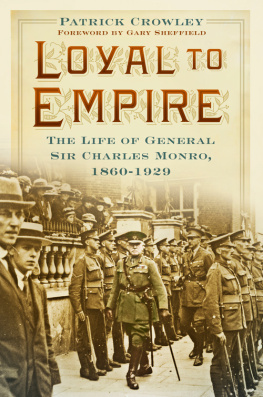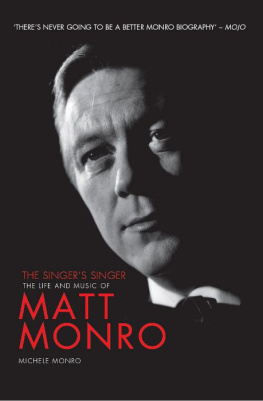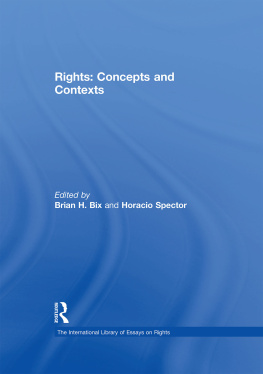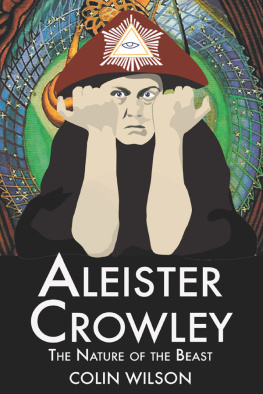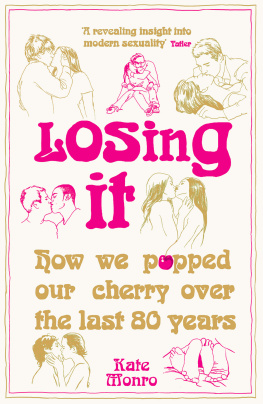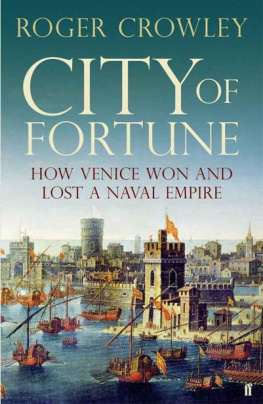Colonel Patrick Crowley - Loyal to empire : the life of General Sir Charles Monro, 1860-1929
Here you can read online Colonel Patrick Crowley - Loyal to empire : the life of General Sir Charles Monro, 1860-1929 full text of the book (entire story) in english for free. Download pdf and epub, get meaning, cover and reviews about this ebook. year: 2016, publisher: The History Press, genre: Politics. Description of the work, (preface) as well as reviews are available. Best literature library LitArk.com created for fans of good reading and offers a wide selection of genres:
Romance novel
Science fiction
Adventure
Detective
Science
History
Home and family
Prose
Art
Politics
Computer
Non-fiction
Religion
Business
Children
Humor
Choose a favorite category and find really read worthwhile books. Enjoy immersion in the world of imagination, feel the emotions of the characters or learn something new for yourself, make an fascinating discovery.
- Book:Loyal to empire : the life of General Sir Charles Monro, 1860-1929
- Author:
- Publisher:The History Press
- Genre:
- Year:2016
- Rating:4 / 5
- Favourites:Add to favourites
- Your mark:
- 80
- 1
- 2
- 3
- 4
- 5
Loyal to empire : the life of General Sir Charles Monro, 1860-1929: summary, description and annotation
We offer to read an annotation, description, summary or preface (depends on what the author of the book "Loyal to empire : the life of General Sir Charles Monro, 1860-1929" wrote himself). If you haven't found the necessary information about the book — write in the comments, we will try to find it.
Loyal to empire : the life of General Sir Charles Monro, 1860-1929 — read online for free the complete book (whole text) full work
Below is the text of the book, divided by pages. System saving the place of the last page read, allows you to conveniently read the book "Loyal to empire : the life of General Sir Charles Monro, 1860-1929" online for free, without having to search again every time where you left off. Put a bookmark, and you can go to the page where you finished reading at any time.
Font size:
Interval:
Bookmark:


General Sir Charles Monro. (Surrey Infantry Museum)
This book is dedicated to the memory of Professor Richard Holmes the inspiration for this tome and to the Surrey Infantry Museum at Clandon House, Surrey, which was sadly destroyed by fire in April 2015.
It has taken some time to write and construct this book, as it has been written over a period when I have left the Regular Army after thirty-four years service and taken on a new appointment championing the cause of the reserves and cadets in the south-east of England. Main thanks go to my wife, Jane, for being so patient as it was being written, and to Lynne Gammond, who kindly spent time proofreading and making suggestions as it progressed. Special thanks also go to Colonel John Powell, who was working in Gibraltar and researched Monros time there for me. In terms of research help, once again Prince Consorts Library in Aldershot and their head librarian, Tim Ward, have been outstanding and I am extremely grateful to the staff of the Surrey History Centre, Imperial War Museum, Liddell Hart Centre for Military Archives at Kings College London, National Army Museum, National Archives, the British Library, Joint Services Defence College Library and Sherborne School for their helpfulness. Finally, I am very fortunate that Professor Gary Sheffield, an internationally renowned First World War expert, has done me the honour of writing the foreword.
Patrick Crowley
General Sir Charles Monro is a difficult subject for a biographer. Unlike fellow Great War generals Douglas Haig and Henry Rawlinson, Monro did not leave a voluminous body of papers. The only previous biography is over eighty years old and is sadly inadequate from the point of view of the modern historian. Nor is there much in the way of modern work on Monro: at best, he has a walk-on role in accounts of Gallipoli and Fromelles. John Bournes chapter length biographical sketch from 2006 is one of the few exceptions.
Patrick Crowley, in his biography, is making bricks with inadequate amounts of straw in places, but by placing Monro in a wider context reduces this as a problem. The more senior Monro became, the greater his visibility in the sources, and so from the Boer War onwards, Monro the man increasingly comes to the fore, although we often see him through the eyes of others. Patrick Crowleys achievement is to make Charles Monro a somewhat less shadowy figure, although in the absence of fuller sources, in some respects Monro remains frustratingly elusive.
And yet Monro, as Colonel Crowley demonstrates, was a significant figure. Two roles stand out: his tenure as a senior commander (at divisional, corps and army level) in the First World War; and as commander-in-chief (C-in-C) India. As commander of 2nd Division in the original British Expeditionary Force (BEF), Monro had a key leadership position at a crucial time. Whilst he was not regarded by successive Cs-in-C, French and Haig, as a top tier general, Monro still had a hugely responsible and vital role to play. He was fated not to command in the great attritional battles of 191617, the Somme, Arras or Passchendaele, nor in the desperate defensive actions of 1918 that proved to be the prelude to the advance to victory from August to November of that year. Thus it is impossible to judge how Charles Monro would have adjusted to the learning process that characterised both the BEF as a whole and its commanders. It is probably unfair to judge him purely on his handling of the Battle of Fromelles in July 1916.
The fact that Monro was selected to become C-in-C India in 1916 is noteworthy, not just because it says something about his reputation as a field commander, but also it is a clear statement of how highly he was regarded as an administrator. This was no sinecure. India was a vital part of the British Empires war effort, and it needed a strong and energetic C-in-C. This period saw Monros greatest contribution to the British state, which remains remarkably unheralded. Monro had already shown his powers of decision and moral courage in taking the decision to abandon the Gallipoli campaign. This was undoubtedly the right call, but it earned him the enmity of Winston Churchill, from whose ever-fertile brain the original scheme had emerged.
There are still many areas of the history of the British Army of the Great War in which much research remains to be done. Surprisingly, high command is one of them. We still know too little about many of the men who commanded major formations. But we now know more about Charles Monro. Undoubtedly, there is more to be done, but Patrick Crowleys admirable book is an important step in the right direction.
Gary Sheffield
Professor of War Studies, University of Wolverhampton
Kitchener, Haig, French, Robertson, Plumer, Allenby and Smith-Dorrien, along with some other personalities, are relatively well-known commanders, but Charles Monro is probably the least familiar of the senior generals of the First World War; it is about time that this situation was rectified, particularly as the centenary of the conflict is remembered.
However, Monro avoided publicity, was a humble man, left few papers for analysis and had no direct family descendants, so investigating his life is quite a challenge. That is probably why no academic has attempted to study him in detail since General Sir George Barrows biography of 1931 and why this book is not a definitive biography the gauntlet is certainly thrown down to anyone who can achieve the perfect analysis of his life from the reference material available.
Barrow was close to Monro and knew him very well, serving as his chief of staff in the 1st Army during 1916 and in India later. His informative book touches many aspects of his career, particularly Monros role in Gallipoli and India, though he avoids any balanced criticism and does not even mention Monros role in the controversial Battle of Fromelles on the Western Front. Nor does he provide any defined sources for his comment.
Otherwise, John Bourne has provided an excellent short summary of his career in Beckett & Corvis Haigs Generals , though his experience of regimental duty and his time in India and Gibraltar does not receive great attention. There is also a good summary of Monros career by Cassar in the Oxford Dictionary of National Biography .
However, none of these more recent references have gone into such depth as Loyal to Empire . This book goes beyond recent short summaries of his military life and deliberately contextualises certain aspects of his career. Whilst knowledge of his detailed personal contribution to operations in the North-West Frontier of India and in South Africa is scarce, these events helped shape his life and attitude. Therefore, they are worth summarising from the perspective of his regiment, the Queens Royal Regiment (West Surrey), and the army formations in which he served.
Monro was instrumental in reshaping musketry tactics before the war at a time of great change within the British Army, yet his role has barely been mentioned in previous histories. He was also one of a few chosen officers to serve as divisional, corps and army commander on the Western Front, was critical in the decision to evacuate the disastrous beaches at Gallipoli and was the senior military commander in India at a particularly crucial and fragile period. This was a loyal and extremely professional officer who was definitely no donkey and just got on with the job.
Next pageFont size:
Interval:
Bookmark:
Similar books «Loyal to empire : the life of General Sir Charles Monro, 1860-1929»
Look at similar books to Loyal to empire : the life of General Sir Charles Monro, 1860-1929. We have selected literature similar in name and meaning in the hope of providing readers with more options to find new, interesting, not yet read works.
Discussion, reviews of the book Loyal to empire : the life of General Sir Charles Monro, 1860-1929 and just readers' own opinions. Leave your comments, write what you think about the work, its meaning or the main characters. Specify what exactly you liked and what you didn't like, and why you think so.

